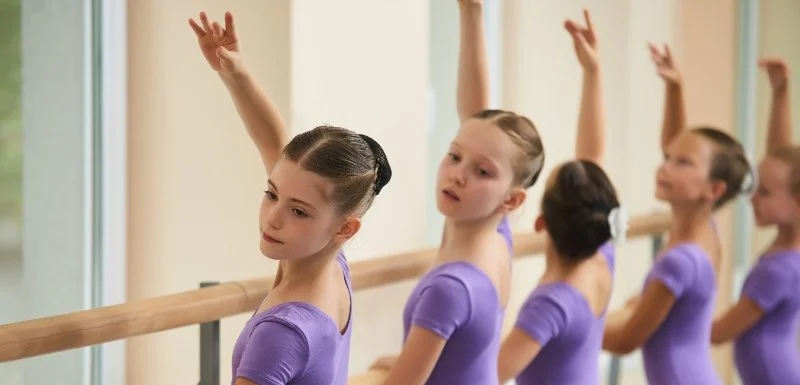
The Etiquette of Dance Classes: Unwritten Rules You Should Know
- 1. Introduction to Dance Etiquette
- 2. Importance of Respect in Dance Classes
- 3. Key Unwritten Rules to Follow in Dance Classes
- 4. How to Prepare for Dance Classes
- 5. Etiquette in Different Dance Styles
1. Introduction to Dance Etiquette
In any group activity, etiquette plays a critical role in ensuring smooth interaction between participants. In dance classes, understanding the unwritten rules is just as important as mastering the choreography. Dance etiquette is all about respecting your fellow dancers, your instructor, and the space you are in, which helps create a positive learning environment for everyone involved. Whether you're a beginner or a seasoned dancer, following proper etiquette will not only help you improve your skills but also ensure that the class remains enjoyable for all.

The Little Gym of Pearland / little gym pearland
9607 Broadway St, Pearland, TX 77584, USA
2. Importance of Respect in Dance Classes
Respect is at the core of dance class etiquette. It's not just about being polite; it's about creating an atmosphere where everyone feels valued and comfortable. When you respect your instructor, your fellow dancers, and the space you're in, it fosters a sense of community and makes the learning process smoother. Respecting personal space, being punctual, and listening attentively to instructions are just some ways you can show respect during class.

Inwood Performing Arts Co / inwood performing arts
InwoodBerkeley CountyWest Virginia
2297 Henshaw Rd, Inwood, WV 25428, USA
3. Key Unwritten Rules to Follow in Dance Classes
While each dance studio or class may have its specific rules, there are several general unwritten guidelines that apply across the board. Here are the key dance class etiquette tips you should always follow:
1. Be Punctual
Arriving on time is one of the most important aspects of dance class etiquette. Late arrivals can disrupt the flow of the class and may also cause you to miss crucial warm-ups or instructions. If you're running late, try to quietly slip in without disturbing others.
2. Respect Personal Space
Dance classes typically involve close movements and formations. Always be mindful of your personal space and avoid invading others' space, especially during partner work or group exercises. If you're practicing alone, ensure you have enough space to move freely without bumping into others.
3. Be Prepared
Come to class dressed appropriately for the style of dance you'll be practicing. This usually means wearing comfortable, form-fitting clothes and proper footwear. Don't forget to bring water to stay hydrated throughout the class.
4. Pay Attention and Stay Focused
Dance classes require full attention. It's essential to listen to the instructor's guidance and focus on your movements. Avoid distractions like texting or chatting during class. If you're struggling with a step or routine, ask for help or clarification during a break, rather than interrupting the class.
5. Show Appreciation
Whether it's your instructor or fellow dancers, always show appreciation for their efforts. A simple thank-you or a compliment can go a long way in building a positive environment in your dance class.
4. How to Prepare for Dance Classes
Preparing for dance classes goes beyond just dressing appropriately. Here are some additional ways to ensure you're ready for class:
1. Stretch Before Class
Warming up and stretching before class will prevent injuries and help your muscles perform better. A quick stretch session before you start will enhance your flexibility and performance.
2. Have a Positive Attitude
Approach each class with enthusiasm and an open mind. Be willing to challenge yourself and learn new things. A positive attitude can not only help you overcome challenges but also make the class more enjoyable.
3. Set Personal Goals
Set achievable goals for each class, whether it's mastering a new step or improving your posture. This will keep you motivated and give you something to focus on as you progress.
5. Etiquette in Different Dance Styles
Different dance styles may require a slightly different approach when it comes to etiquette. Here's a brief overview of what you should know:
1. Ballet
Ballet classes are all about discipline and focus. Proper posture, respect for the instructor, and silence during corrections are crucial. Ballet often involves quiet concentration, so be mindful of your noise level and movement.
2. Hip-Hop
In hip-hop classes, the energy is often high, and students may interact more with each other. However, the basic etiquette of respecting personal space and listening attentively still applies. Be ready to stay active and engaged in the class!
3. Contemporary Dance
Contemporary dance classes emphasize expression and creativity. Respect for others’ personal space and the use of props are key aspects of etiquette in this style. Always be mindful of how your movements affect those around you.
If you're looking for more dance tips or need a supportive environment to learn and grow as a dancer, check out Creative Edge Dance Studio for top-notch classes and expert instructors!
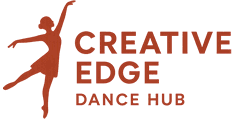
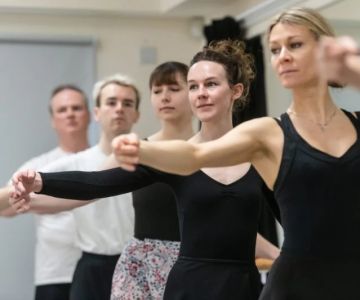



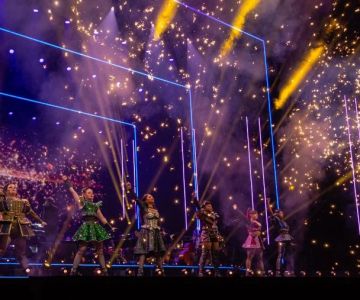
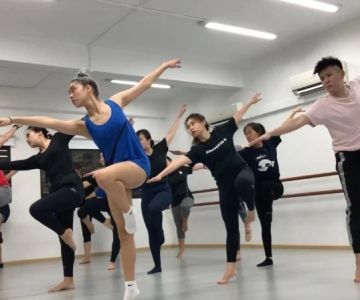
 The Rush Dance Studio4.0 (13 reviews)
The Rush Dance Studio4.0 (13 reviews) Encore School of Dance4.0 (97 reviews)
Encore School of Dance4.0 (97 reviews) EnRich Gymnastics & Dance Academy4.0 (211 reviews)
EnRich Gymnastics & Dance Academy4.0 (211 reviews) Elite Ballet School5.0 (5 reviews)
Elite Ballet School5.0 (5 reviews) Hui Kaululehua5.0 (1 reviews)
Hui Kaululehua5.0 (1 reviews) The East Texas Yamboree4.0 (83 reviews)
The East Texas Yamboree4.0 (83 reviews) My Story of Starting My Own Dance Workshop Series — What I Learned
My Story of Starting My Own Dance Workshop Series — What I Learned The Best Mindset for Learning and Retaining Dance Choreography
The Best Mindset for Learning and Retaining Dance Choreography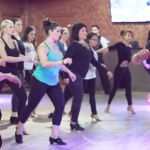 The Pros and Cons of Large Group vs. Small Group Dance Classes
The Pros and Cons of Large Group vs. Small Group Dance Classes My Journey into Using Holographic Projections for My Dance Show
My Journey into Using Holographic Projections for My Dance Show htmlCopy codeHow I Learned to Teach Social Dance at Weddings — My Story
htmlCopy codeHow I Learned to Teach Social Dance at Weddings — My Story How to Manage Your Budget for a Dance Class Habit
How to Manage Your Budget for a Dance Class Habit